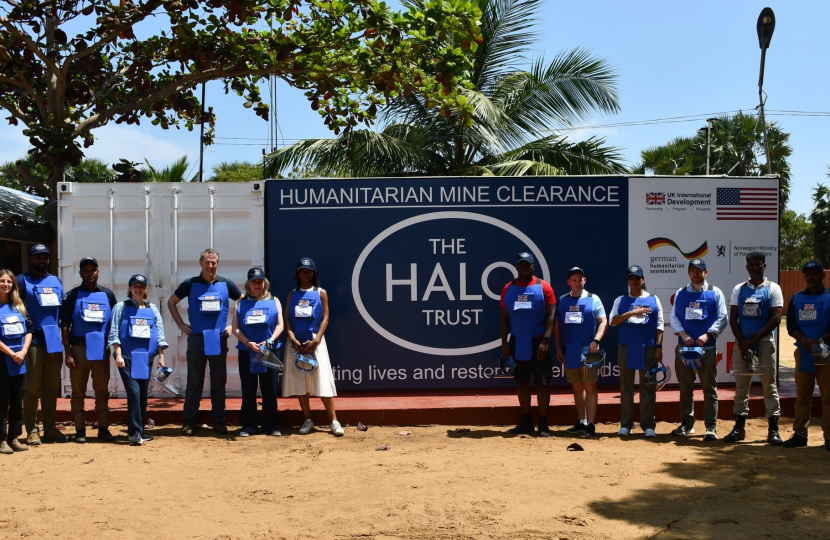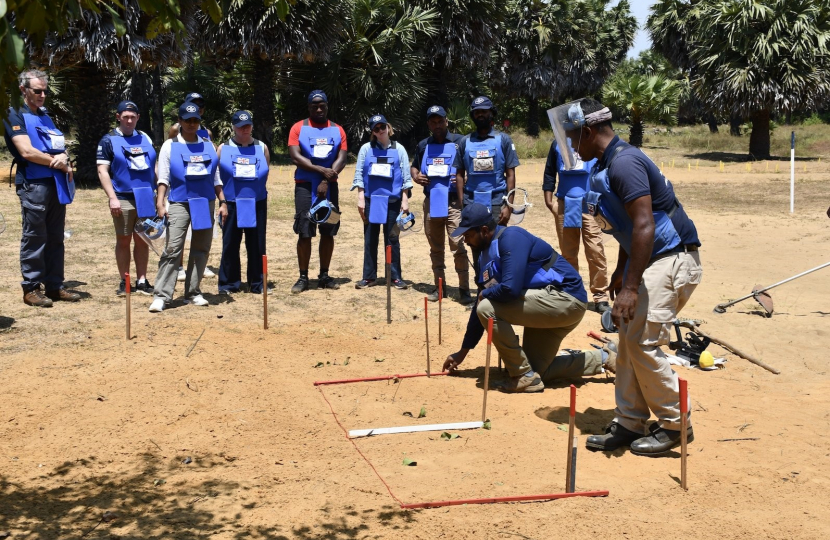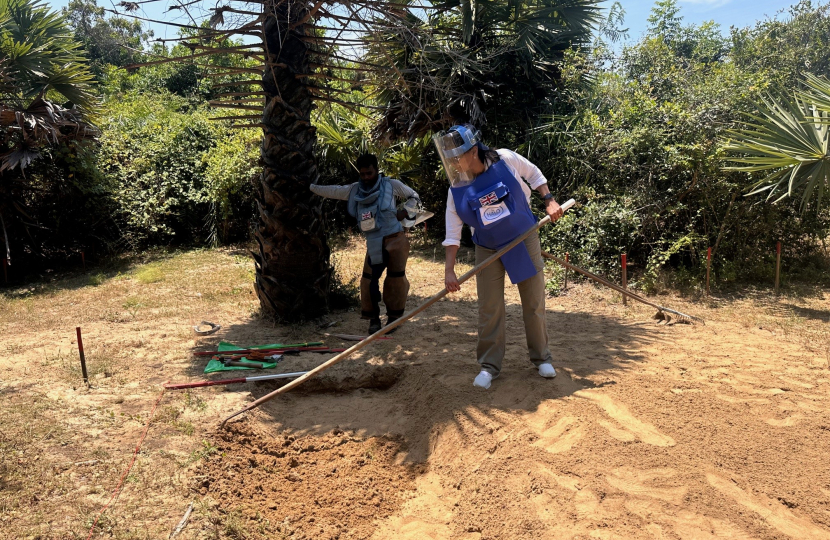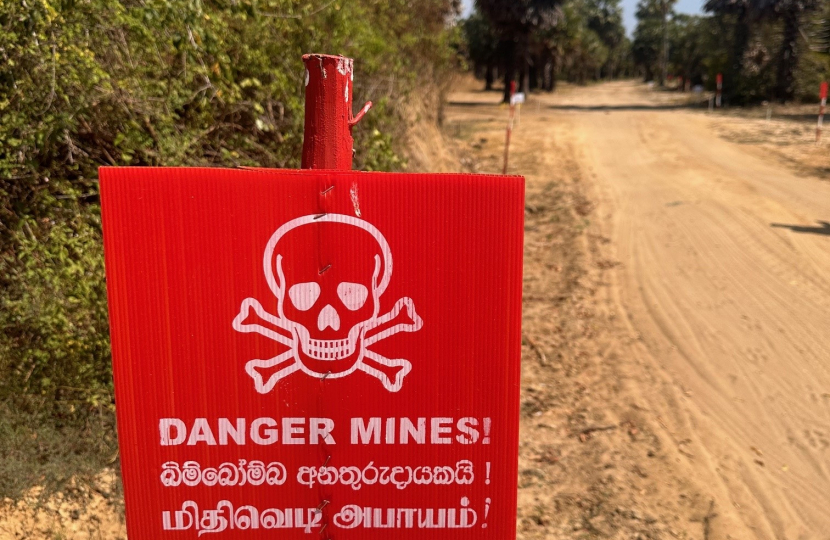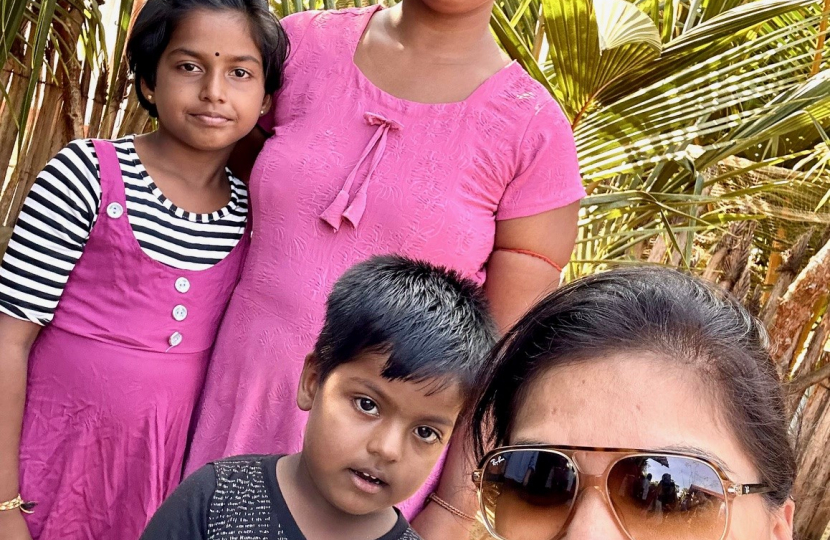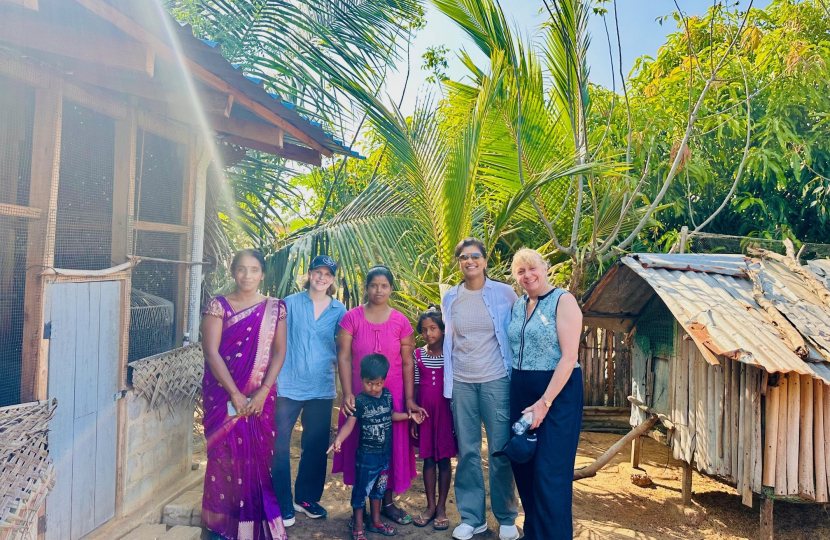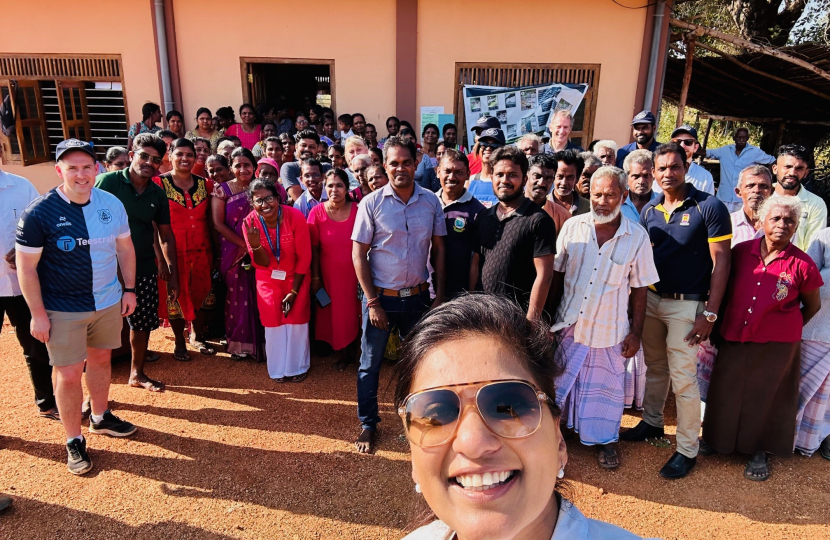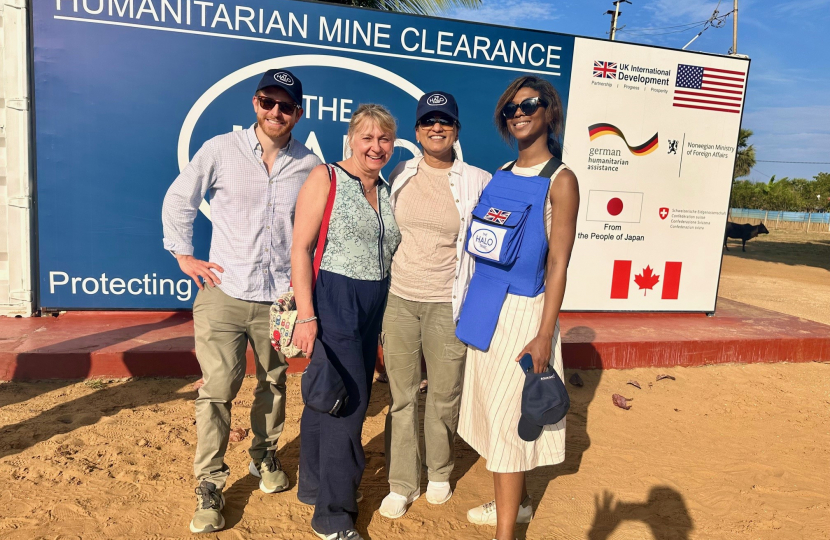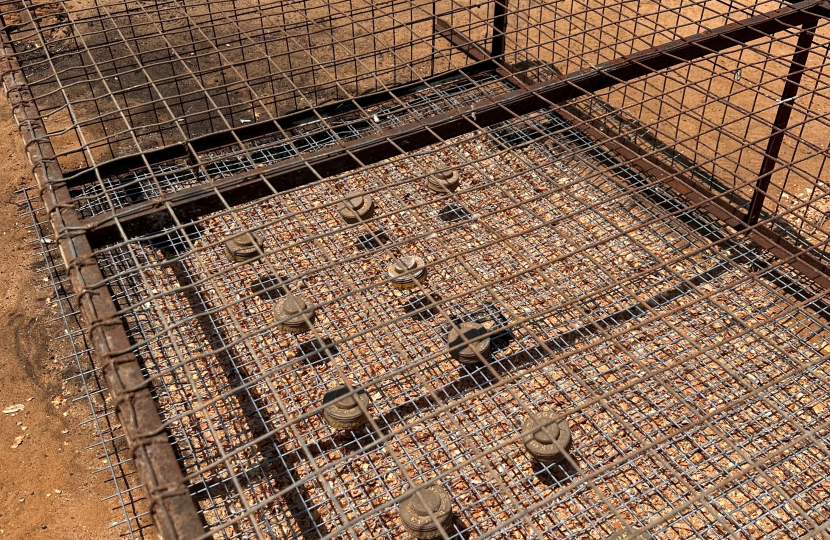Having the opportunity to join a team of cross-party delegates on a visit to Sri Lanka was not just a professional endeavour for Cllr Shazna Muzammil—it was deeply personal. Growing up amidst a civil war, she was no stranger to the devastating effects of conflict. So, when she had the chance to visit Jaffna, a city that had endured the horrors of war, it struck a chord with her on a profound level. She expressed immense gratitude to the Coalition for Global Prosperity for providing her with this opportunity and making all the arrangements.
Sri Lanka, this small island in the Indian Ocean, has faced its fair share of challenges. The 30-year civil war, which finally came to an end in 2009, left behind a staggering toll of 80,000–100,000 deaths, according to UN estimates. And if that wasn't enough, the Boxing Day Tsunami of 2004 claimed over 35,000 lives in a matter of minutes, further adding to the island's woes.
Her previous visits to Jaffna in the aftermath of the war painted a stark picture of the lingering effects of conflict. Every face she saw had pain and trauma etched on them, and the scars of battle were very much evident in the buildings and homes covered in bullet holes and collapsed roofs. Yet, amidst the rubble and remnants of war, there was always a glimmer of hope—the resilience of the Sri Lankan people.
During her recent visit, she was truly surprised by the progress that had been made in Jaffna since the end of the civil war. The region seemed to have undergone a transformation, with signs of prosperity everywhere. Life had returned to the streets, and it was inspiring to witness the indomitable spirit of the people as they rebuilt their lives.
Though the memories of conflict may linger, the people of Jaffna have demonstrated an unwavering determination to move forward. Their resilience is a testament to the human spirit's ability to triumph over adversity.
And within this sphere sits the Halo Trust, clearing mine-ridden areas and making it safe for people to return to their homes. Halo has been in Sri Lanka for 22 years, and the UK Government has funded 18 of its 22 years as this largest global humanitarian demining organisation carries on its work in the northern and eastern parts of Sri Lanka. Halo works in collaboration with UNDP and the local authorities to resettle internally displaced people (IDPs), and there are still around 9000 people yet to be relocated in Jaffna alone. These people have had to move over and over, rebuild their lives, and then move again, and it is time they had their own homes where they can put down roots and bring up their families. The UK's funding is helping them.
The impact of Halo's work is nothing short of transformative. With 117 square kilometres of land released, thousands of individuals now have the opportunity to build their homes and communities. Over a quarter of a million mines and nearly a million unexploded ordnance have been safely removed. Over 280,000 people have now returned to land released by Halo and have begun to build communities.
Halo's commitment to demining goes beyond simply clearing landmines—it extends to empowering the very communities affected by conflict. By providing jobs and opportunities to locals and internally displaced persons (IDPs), Halo is not only making areas safe but also fostering economic growth and resilience.
Raj, one of the deminers, while teaching her the back-breaking skill of carefully clearing a mine, expressed his gratitude for the employment opportunity provided by Halo. Travelling over an hour to reach his workplace in Mahumalai, Raj emphasised the importance of having a job in a region where the employer also provided transport. For him, Halo's support means more than just a paycheck—it's a lifeline in rebuilding his life and providing for his family.
Standing in the middle of a defence line that has only been partly cleared, Vic, also of the Halo Trust, spoke to her. His story serves as a poignant reminder of the enduring suffering endured by many in conflict-affected regions. Having been displaced at a young age, Vic vividly recalls the pain of being uprooted multiple times, leaving behind everything except the clothes on their backs. His words resonate with the countless others who have endured similar hardships, facing the harsh reality of displacement and loss. His voice still carries the pain of the war, very much not forgotten.
Despite the challenges, Halo's impact extends even to those who once played a role in the conflict. An ex-LTTE cadre now contributes to the demining efforts, showcasing the transformative power of reconciliation and rehabilitation. The irony of his past involvement in laying mines is not lost, underscoring the complexity of conflict and the potential for redemption and healing.
They were also fortunate to visit a resettled community and speak to them. Sitting in a community center funded by UK’s foreign aid and built with the help of UNDP, they couldn't help but feel a sense of pride knowing that their efforts are making a tangible difference in the lives of vulnerable individuals. It reaffirmed her commitment to standing as a parliamentary candidate, knowing that the opportunities it provides to aid those in need across the globe are immeasurable.
While strides have been made, much remains to be done in post-war Sri Lanka. Unfortunately, many parliamentarians are preoccupied with a looming general election and pressing economic challenges, leaving little room for engagement in crucial matters like infrastructure development and resettlement efforts. Additionally, the absence of local government representation following the riots further complicates matters. Amidst these challenges, organisations like Halo continue their vital work, but funding remains a pressing need. The road ahead feels daunting, but her commitment to supporting initiatives for peace and reconciliation in Sri Lanka must remain steadfast.
Discussions around aid budget cuts were constant chatter amongst her political colleagues from both parties, but there was unanimous agreement on one thing—the profound impact of the UK's presence on foreign soil. Their nation is revered as a beacon of influence, support, and hope, and their assistance is valued by nations far and wide. And as they witness the safe return of those who once sought refuge on their shores, they are reminded that their efforts to empower others abroad ultimately contribute to their own security here in the UK.
Overall, her experience in Sri Lanka was a powerful reminder of the importance of aid efforts in regions affected by conflict and natural disasters. The progress that has been made in Jaffna is a testament to the resilience and determination of the Sri Lankan people, and the power of the UK’s foreign aid can be seen everywhere.



